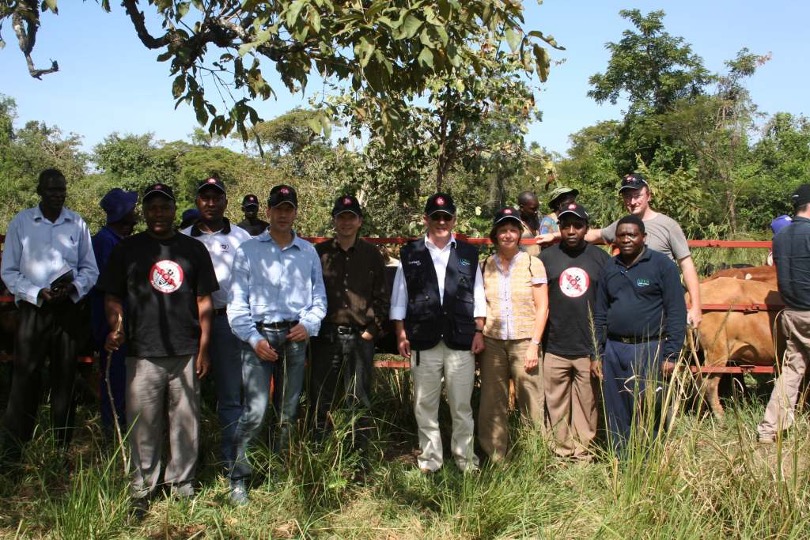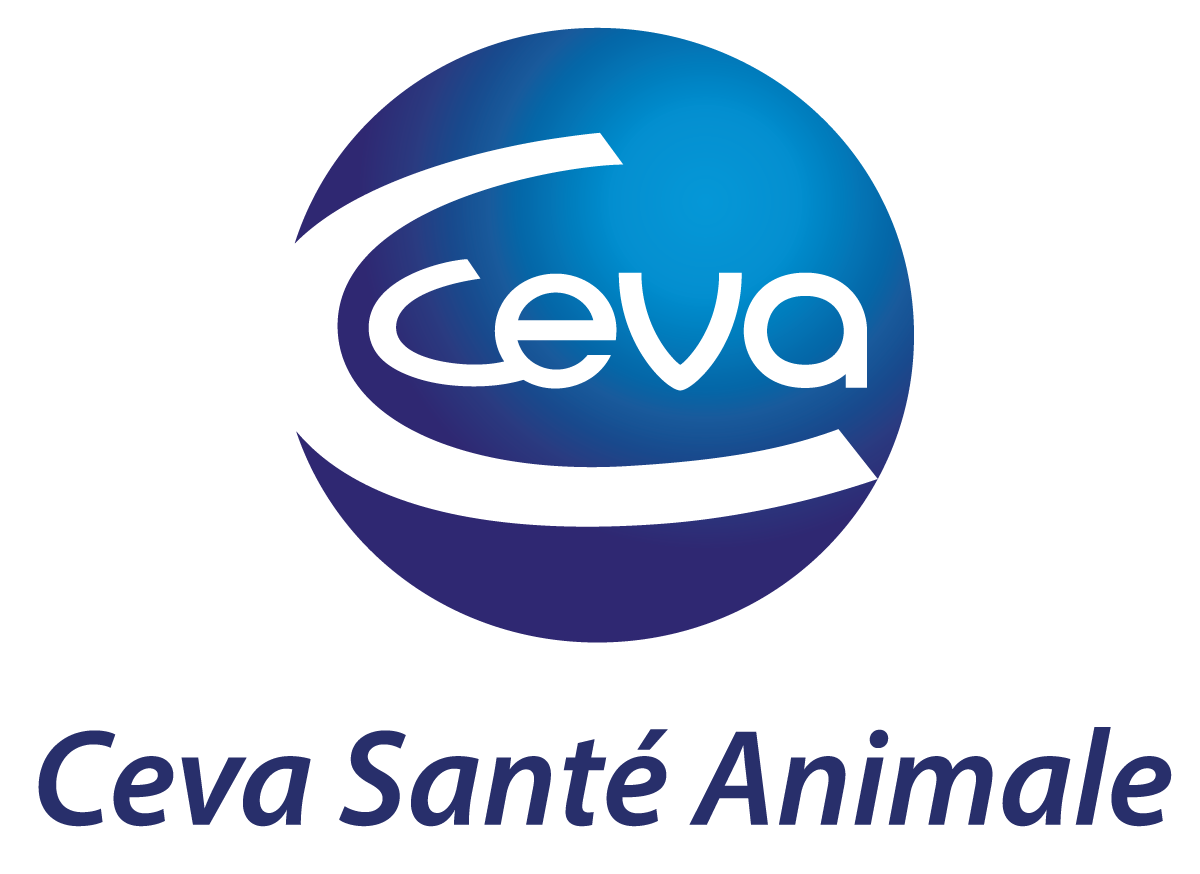Pandemic Preparedness: A One Health public-private partnership in Uganda delivers sustainable preventative health and economic benefits
Knowledge of infectious diseases amongst members of the public has risen dramatically recently due to the Covid-19 pandemic. Now everyday discussions might include casual references to lateral flow and PCR tests, RNA vaccines, herd immunity, modelling, R numbers – terminology that, until recently, was limited to health professionals and researchers.
The achievement of developing, testing and deploying at vast scale effective vaccines within just a few months of the first detected cases of Covid-19 is truly remarkable. However, it has, perhaps, raised unrealistic expectations – if this could be done for a new threat like Covid-19, why can’t similarly effective vaccines be produced for other infectious diseases in timeframes measured in months rather than years or decades?
Unfortunately, not all disease-causing pathogens, which include bacteria, fungi and parasites as well as viruses, are the same; many employ complex strategies to evade immune responses of people or animals.
So, for example, after four decades and an enormous global effort there is still no vaccine for HIV/AIDS. Only recently have vaccines against malaria been developed, although the latter are far from ideal and, so far, have been administered on a tiny scale making very little impact on the hundreds of millions of cases of malaria reported annually and the hundreds of thousands of deaths officially attributed to this scourge each year.
Sleeping sickness is a serious, often fatal human disease caused by a single-celled parasite that is transmitted by the tsetse fly as it feeds on blood. Sleeping sickness in people and a few closely related livestock diseases that occur only in Africa are another group of diseases for which it has proved to be impossible to develop effective vaccines despite decades of work by scientists around the globe.
This is why, over the past 20 years, Ceva has actively supported a research program that generated the evidence-base for the creation of a public-private partnership led by the government of Uganda, known as SOS – short for Stamp-Out Sleeping Sickness – that set out to prevent sleeping sickness in Uganda. The SOS consortium brought together experts and policy makers from the Ugandan government, researchers from Makerere University, Uganda and the University of Edinburgh, Scotland, and also Ceva and IKARE. IKARE is a UK registered charity that uses best business practices and venture philanthropy principles to achieve societal impact.
Research carried out by members of the SOS consortium, led by the University of Edinburgh, demonstrated that the parasites that cause the acute form of sleeping sickness primarily live in cattle which are unaffected by their presence. However, tsetse flies can become infected with the parasites as they feed on the blood of infected cattle and then, if they go on to feed on people, the parasites can be transmitted to them. The SOS team showed that a person in Uganda is up to 100 times more likely to develop sleeping sickness by becoming infected as a result of the bite of a tsetse that had become infected by feeding on a bovine than from a tsetse that had become infected feeding on a person.

In the past, sleeping sickness was largely controlled by mass screening of people for the parasite – which required a needle to be inserted into their spinal cord to obtain a sample of spinal fluid – and treating positive cases with powerful drugs. Both the diagnosis and treatment were unpleasant and potentially life-threatening.
Fortunately, the SOS team demonstrated that it was possible to treat cattle rather than people; if the parasites could be eliminated from cattle, then they could not be passed on to people via biting tsetse flies. They showed that once the parasites had been eliminated from the cattle by using drugs, spraying the animals with a veterinary insecticide that repelled most tsetse and killed any that landed on the cattle was sufficient to prevent reinfection.

Regular monthly spraying of cattle resulted in direct benefits for cattle owners through reduced disease pressure from the cattle form of sleeping sickness and also through prevention of tick-borne diseases due to tick control. Better disease control was estimated to generate productivity gains in cattle worth USD 30 per head per year.
As Ceva’s Martin Mitchell explained:
In the early stages of SOS, Ceva’s role had largely been to donate the trypanocidal drug used to clear the sleeping sickness parasites from the cattle’s blood and also the insecticidal spray used to control the tsetse flies. Our support enabled the SOS team to demonstrate proof-of-concept for treating cattle to prevent the disease in people.
It soon became apparent, however, that the infrastructure and human resources for supporting mass treatment beyond a short-term project approach was lacking. In the areas of Uganda most affected by sleeping sickness, there were no local private veterinary practices, no shops selling animal health products and an acute shortage of government vets.
Martin Mitchell continued:
The challenge was to develop a strategy to enable millions of cattle to be treated in the long term and in a sustainable manner. This is where our experience as a major supplier of animal health products in Africa came to the fore. We realised that the solution was to help establish a sustainable and viable business model. IKARE, with their private equity experience from building stronger companies through active ownership agreed and provided the necessary start-up funding to match our technical support.
So, under the auspices of SOS, between 2009 and 2011 a total of eleven young newly graduated vets from Makerere University were supported to establish private veterinary practices in the areas most affected by sleeping sickness. The veterinary businesses were branded 3V Vets, originally a reference to the three key Ceva products, all beginning with the letter v, Veriben, Veridium and Vectocid, used to treat cattle to prevent sleeping sickness spreading to people. Today, as the 3 V Vets businesses work with many different suppliers, the three Vs stand for Village Value Veterinary services.

To enable large numbers of cattle to be regularly sprayed with insecticide, each vet recruited a team of initially 40 or so local community members (farmers, teachers etc) g who provided a mobile cattle-spraying service. This network has over the years grown to some 400 so called spray persons. The young vets were initially paid a salary, supplied with a motorcycle, mentored and supplied with the necessary animal health products channelled through a local company, High Heights Services Limited, and they also received technical, business and financial support and training from Ceva and IKARE. The proprietor of HHS Ltd was a professor from Makerere Veterinary School who had been involved in the SOS program from the outset.
The number of cattle being regularly sprayed has increased year-on-year: in 2018, 1.5 million cattle, or 70% of the herd, were sprayed. In addition to effectively controlling sleeping sickness, the productivity gains in treated cattle amount to USD 45 million a year. With the Ugandan government reinforcing spraying practices through paying for catalytic spraying exercises with up 25% of the herd to be sprayed this means the control of sleeping sickness is achieved through a combination of farmers doing it for themselves and public good to protect the broader community. The cost of spraying 25% of the cattle herd is a much cheaper and more effective way of controlling the disease than the previous approach which involved surveillance of at-risk communities and hospitalisation and treatment of diagnosed patients. The economic value of sleeping sickness cases averted, detrimental impacts on the health and wellbeing of surviving patients, and care costs averted has been estimated at up to USD 400 million a year.
Martin Mitchell, Ceva’s Director for Sustainability, who was involved in SOS from the outset, explained:
One thing Ceva together with IKARE brought from the private sector was a perspective where we knew we would have to exit. And when you know that you’ve going to leave, you’ve got to think about your legacy and train people locally so they are able to deliver whatever you jointly have agreed you want to achieve. So, looking back more than a decade, we have I think five of the young veterinarians that we trained and set up in business still there in 2022.
Since the SOS campaign began in 2006, the number of cases of sleeping sickness in people in Uganda has dropped steadily from several hundred a year. In recent years, only a handful of cases have been detected and in 2020 no cases at all were reported in the SOS campaign area. Sleeping sickness as a public health risk in Uganda has been virtually eliminated.
Patrick Opondo was one of the original 3V Vets whose business is still thriving in 2022. As he explained:
We, the 3V Vets, feel proud of being able to be part of the initiative that has managed to supress sleeping sickness in humans as well as creating improvement in animal welfare and increasing the livelihoods of people.
The SOS campaign has been highlighted by the World Health Organisation as one of the most successful examples of One Health in practice globally. A review published in the respected, peer-reviewed journal PLoS Neglected Tropical Diseases suggested that the SOS public-private partnership could serve as a model for other regions and diseases in order to develop sustainable prevention and control systems.

Commenting on the success of SOS, Professor Sue Welburn from the University of Edinburgh, who led the research program from the outset, pointed out:
The SOS partnership has undoubtedly been a great success. The fact that no cases were detected in southeast Uganda in 2020 needs to be considered against the backdrop of Covid-19 and the restrictions this placed on surveillance activities. However, the number of human cases has been close to zero each year since 2016. I am confident that as long as sufficient cattle are regularly sprayed with insecticide, we will never again witness the distressing sight of hospitals in Uganda full of sleeping sickness patients. SOS demonstrates just what can be achieved when the public and private sectors, and local and international partners, join forces and work together, tirelessly to achieve a common goal.
